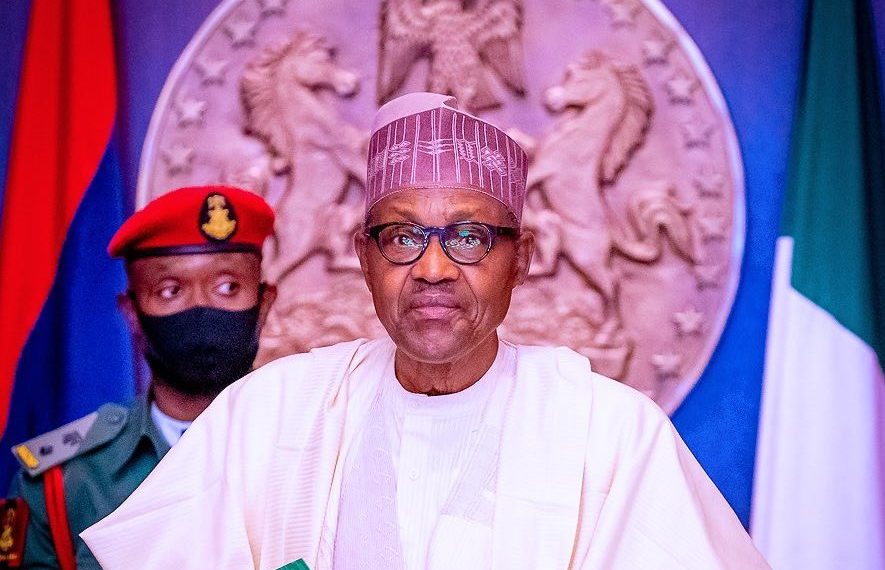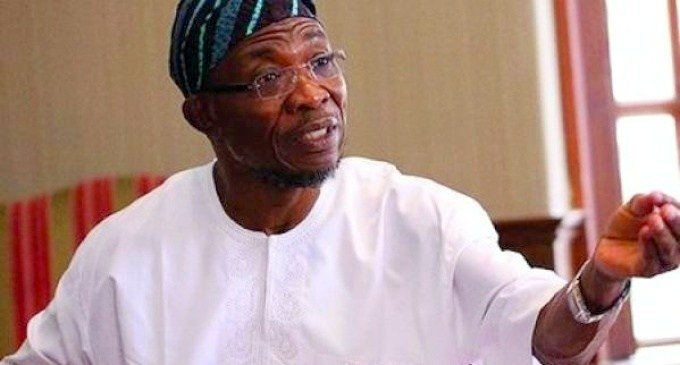business
Rising Debt Profile: Concerns Mount over Increased Costs


Advertisement
Analysts have expressed fear over Nigeria’s rising debt profile after President Muhammadu Buhari made a formal request to the parliament for approval of $6.18 billion foreign loans. A slew of investment analysts queried the sustainability of the burgeoning loans amidst surging rate on Eurobond.

Advertisement
In local currency, the proposed foreign currencies borrowing amounts to more than N2.5 trillion if converted at National Autonomous Exchange rate as the central bank halts foreign exchange provisioning for government transactions.
Eurobond rates average for Sub-Saharan African countries averaged 7.5% in the first quarter of 2021. It would be recalled that Ghana, despite a history of lower Eurobond rate compare with Nigeria, paid as much as 8% on its Eurobond issuance earlier in 2021.
Total public debts printed at N32.915 trillion as of December 2020 according to data from the nation’s debt management office (DMO). “We think the Federal Government can no longer ignore the associated debt sustainability risk”, analysts at United Capital said in a note.
The firm’s note titled: “More and more debt…Where do we draw the line” posited that FG’s debt service cost as a percentage of revenue is a fairer reflection of the country’s debt sustainability position.
According to the request for approval, the loan is aimed at part-financing the N5.6 trillion budget deficit for 2021 with a critical focus on funding capital expenditure.
It is noteworthy to mention, the loan request had been provided for as part of the 2021 appropriation act, thus the current presentation is merely to fulfill legal provisions.
Interestingly, analysts at United Capital recalled the government recently got approval for $1.5 billion and €995.0 million worth of multilateral loans – just a few weeks ago.
Last year, the Federal government relied heavily on a slew of borrowings largely from multilateral organisations such as the IMF, World Bank, and AfDB.
Analysts however recognised that the huge reliance on the debt market was necessitated by shocks to revenue generation.
Similarly, they stated that the Nigerian government appears to be leaning heavily towards the external debt market in 2021, to spend its way out of the economic slowdown.
“The concern remains Nigeria’s rising debt sustainability risk. At the end of 2020, Nigeria’s total debt stock (national & subnational) stood at N32.9 trillion or $86.8 billion in dollar term.

Advertisement
“The government has historically justified its rising debt profile by the compliant debt to gross domestic product (GDP) ratio of less than 30.0%”, analysts said.
“We reiterate our position that the FG’s debt service cost as a percentage of revenue is a fairer reflection of the country’s debt sustainability position.
“This is because a huge proportion of nominal GDP does not contribute to government’s ability to repay its obligations”, analysts at United Capital stated.
Noting that the pandemic driven revenue shock has exacerbated the already precarious debt service cost to revenue ratio averaging about 8 0% i n 2020 from historic average of about 5 5%.
“Thus, while we recognize deficit spending as a critical fiscal policy tool to drive economic recovery, we think the FG can no longer ignore the associated debt sustainability risk”, analysts said.
In the fourth quarter of 2020, CardinalStone partners had said given its ever-widening budget deficit and concurrent FX needs, Nigeria may be tempted to revisit the Eurobond market in 2021 after having shelved plans to raise $3 billion in 2020 following the COVID-19 outbreak.
Investment experts at the firm added that a return to the international debt market may, ultimately, depend on external financing conditions.
Even though weaker oil prices and domestic FX liquidity issues are concerning, the Fed’s long-term dovish posture and relative stability in the Eurobond market suggest that a few providers of long-term capital may still be up for some risks.
That said, investors are likely to demand a premium to pre-pandemic levels of about 7.5%, on duration, for a potential Eurobond issuance.
In 2021, the Nigerian government expects to raise total revenue of N7.89 trillion. This revenue projection comprises expected inflows from grants & aids (N354.85 billion) and funds from several government-owned enterprises.
According to the budget document, the oil price and production assumptions are likely to result in oil revenue of 2.01 trillion (25.5% of total).
Elsewhere, the government is also aiming to raise N1.49 trillion (18.9% of total) in non-oil revenue while the remainder may likely be derived from independent revenue sources, special account transfers and signature bonuses and renewals.
Budget Deficit
To the government, revenue shortfall should approximate N5.6 trillion, representing about 4% of GDP in 2021. The FGN plans to finance the deficit with flows from new borrowings, privatisation proceeds), and drawdowns from multilateral and bilateral loans secured for specific projects and programmes (N709.69 billion).
– Market Forces Africa

Advertisement
-

 news7 years ago
news7 years agoOsun Government presents 2015, 2016 audited accounts…sets record as the first state in Nigeria to publicly declare accounts
-

 crime5 years ago
crime5 years agoArotile’s ex-classmate had no driver’s licence, report reveals
-

 lifestyle8 years ago
lifestyle8 years agoAmazing Tips for an Outstanding Makeup
-

 news4 years ago
news4 years ago2023: Kola Abiola Set To Declare For Presidency
-

 entertainment5 years ago
entertainment5 years agosanwo-Olu honours sacked chaplain after Ambode’s wife saga
-

 entertainment6 years ago
entertainment6 years agoSee how Women now use toothpaste to tighten vagina
-

 business5 years ago
business5 years ago#EndSARS: Access Bank announces N50 billion interest-free facility for businesses
-

 lifestyle5 years ago
lifestyle5 years agoUS Church ‘refunds members three years tithes’ as help during COVID-19

